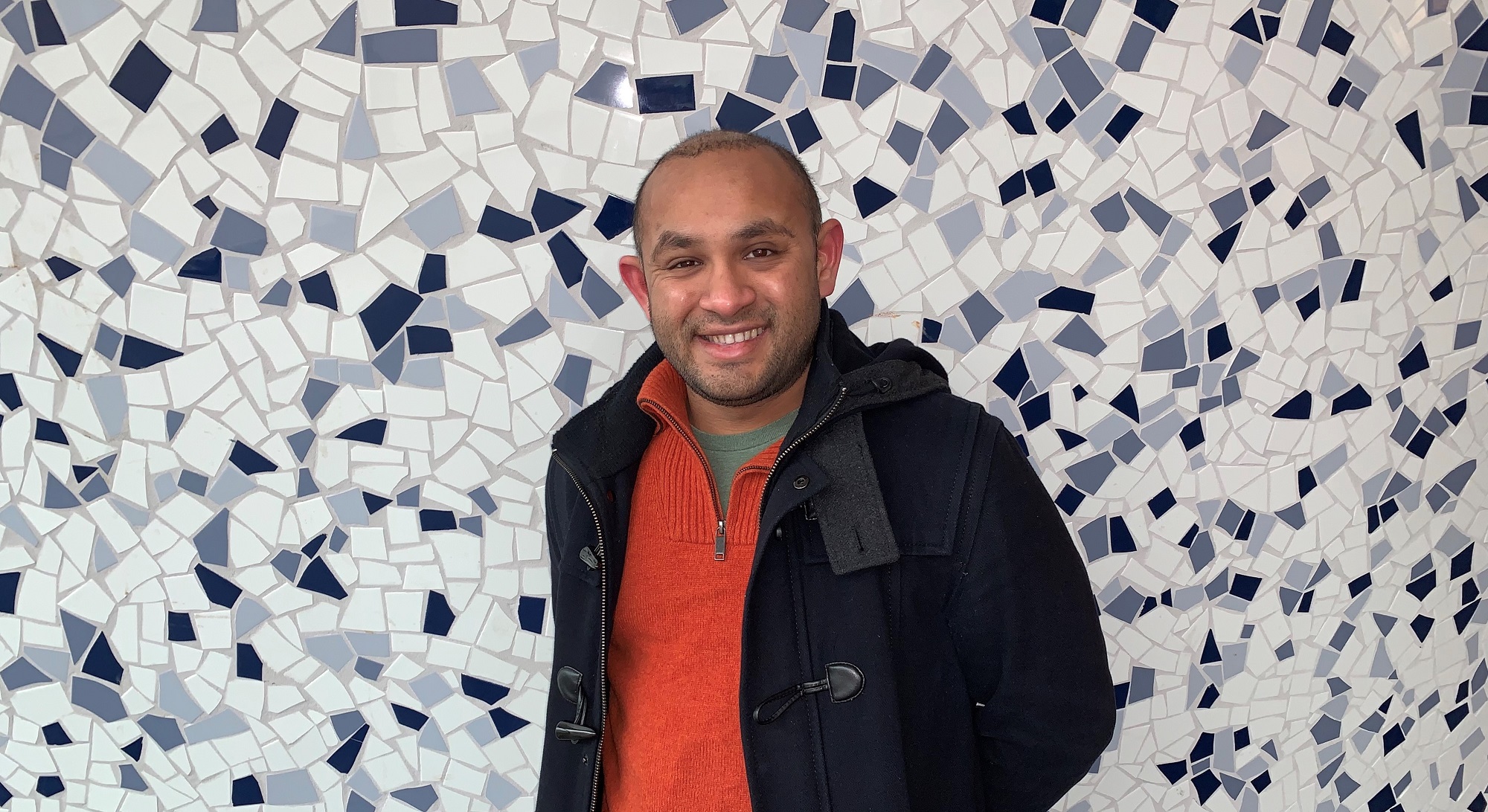Understanding the needs of communities is an important part of developing new technologies for them, says PhD candidate Shantanu Chakraborty.
Shantanu Chakraborty: “I want to not only work on the technological side, but also work with communities, work with people.” (Photo: Deirdre Casella)
“I ended up at TU Delft because of the topic of energy. Back in the day when I was just a teenager, there was an incident that happened in my city in India. There was a massive flood and it was one of the early effects that I could understand about global warming. It caused me to start thinking about ways of actually addressing it, and that eventually led me to focus on energy. Before that I was enamoured with computer systems, so I did a bachelor’s in computer science. With that I learned about the application of computational logic to physical systems such as energy and power.
That led me to Carnegie Mellon University in the US where I did my master’s studies in the Engineering and Economics of Power Systems. During this time, I made a lot of connections with interesting researchers in the field. Feeling the need for acquiring more experience in the field I started working for companies in Colorado and California. After working for a couple of years, I had an ambition to pursue doctoral studies on future energy systems and markets. During my search, I came across a position at TU Delft which was funded by a Marie Curie scholarship, and I thought there was no harm in applying. After applying for this position, I discovered that my master’s thesis supervisor in the US was the promotor of my current Daily Supervisor at Delft which provided a natural connection for me.
‘We look at not only technology’
My research is about electricity markets and at the Faculty of Technology, Policy & Management we take a comprehensive approach. This means that we look at not only technology, but we also look at the institutions which facilitate technology to be integrated into a system. This system can be a social or a market system or both and each system has disparate actors interacting within it.
Within this research area, my work is focussed on electricity markets and its evolution as we undergo energy transition. As a part of this energy transition, you’re going to have more renewables being integrated into the grid. Sectors such as transport and heating will be electrified and policies for supporting them need to be investigated. The main reason for this is since renewables produce energy with zero or very low carbon, they are actually more beneficial for the environment. But renewables are intermittent, so how do you ensure the stable working of a system in terms of technology and economics? In my work, I concentrate on the economics of future electricity markets where prices are expected to become more volatile, and use approaches based on mathematics and systems thinking, to mitigate this volatility while ensuring the stable operation of the electric grid.
I have an idea of what I want to do next. My preference is to work for organisations such as think tanks, energy consultancies or international organisations such as the World Bank or the United Nations that empower me to focus on energy technologies for developing countries, and developing community-centric energy infrastructures.
After my experience at this Faculty, I want to not only work on the technological side, but also work with communities, work with people. It’s important to identify their requirements and identify how technology can be tailored to it rather than focusing solely on developing sophisticated technology. We must also focus on the economic feasibility, accessibility, and ease-of-use of these technologies by communities. Hence, we must work together with the community to overcome these barriers and hopefully all our endeavours will lead to economic growth for them.
Also, coming from my own background, I have seen underprivileged children in India who don’t have access to electricity. For example, Mumbai is an overpopulated city where you have people who may not have access to the electric grid. In that case, focusing on the features of decentralised technologies to enable children to study at night by having access to light is important. Enabling these infrastructural developments from a systems-thinking perspective motivates me.”
Want to be featured in Humans of TU Delft? Or do you know someone with a good story to tell? Send us an e-mail at humansoftudelft@gmail.com
Heather Montague / Freelance writer



Comments are closed.